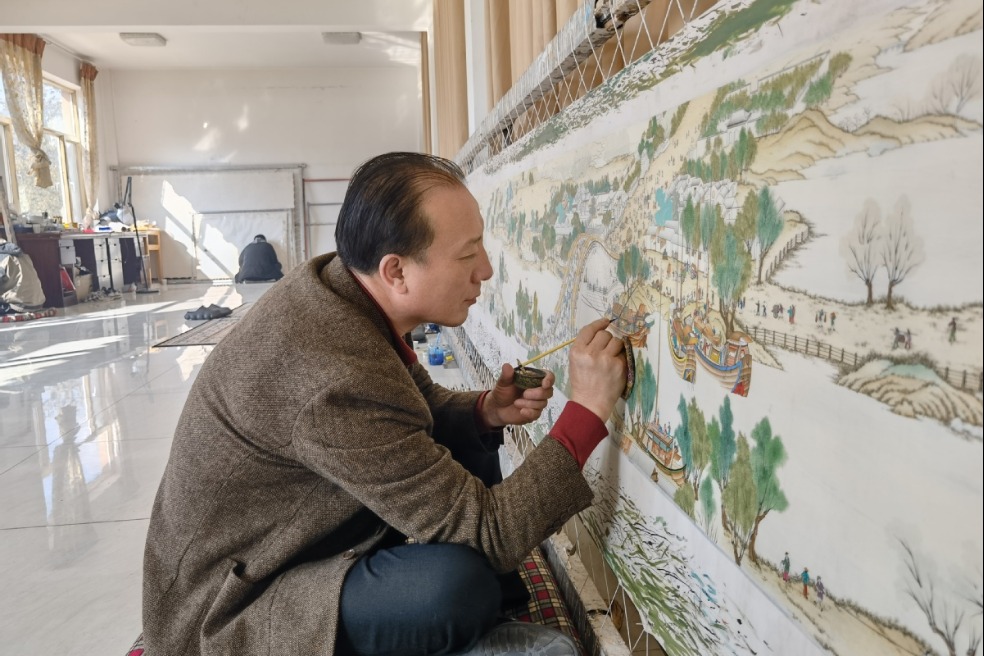70 years on, China's auto industry becomes major force in global auto landscape
Xinhua | Updated: 2023-07-15 13:46

CHANGCHUN -- China's leading automaker FAW Group Co Ltd celebrated its 70th anniversary as its 55.77 millionth car rolled off the intelligent production line on Saturday.
The construction of the First Automotive Works, China's first automotive manufacturing plant and predecessor of FAW Group, was launched in Changchun city, Northeast China's Jilin province, on July 15, 1953, marking the beginning of the nation's auto industry.
On July 13, 1956, the first domestic Jiefang truck rolled off the company's assembly line after three years of preparation and trial production, ending the history that China could not produce vehicles. From its first car rolling off the production line to being one of the world's top 500 companies, the FAW Group has become the epitome of China's auto industry development.
After seven decades of relentless efforts, China is moving forward to become a world auto-making powerhouse.
Data showed that China has been the world's largest automobile production and sales country for 14 consecutive years, and the production and sales of new energy vehicles (NEVs) topped the global market for the eighth year in a row.
Particularly, China's vehicle exports soared to around 1.07 million units in the first quarter of 2023, data from the General Administration of Customs showed, indicating that China had become the world's largest auto exporter in the period, even outpacing Japan.
"We have broken through a number of bottleneck technologies, put in a batch of competitive products, and made solid steps in science and technology self-reliance," said Qiu Xiandong, general manager of FAW Group, at the commemorative activity on Saturday.
According to Wang Deping, executive vice president of the R&D institute under the FAW Group, the company has broken through 494 key and core technologies in the past three years.
"Our R&D staff number has grown from 2,360 to more than 4,500, and the development cycle for new cars has been reduced from 48 months to 24 months," Wang said.
Industry insiders believe that this round of new energy transformation opportunities for China's automobile industry has not only given new vitality to the old industrial bases but also given birth to new car-making forces such as NIO and Li Auto.
Data from the China Association of Automobile Manufacturers showed that from January to June 2023, China's NEV production and sales exceeded 3.78 million units and 3.74 million units, a year-on-year increase of 42.4 percent and 44.1 percent, respectively.
Nowadays, the Chinese people have shown diversified demand for vehicles, and major automakers have therefore launched more segmented products.
Liu Kexin, senior researcher with the China Automotive Technology and Research Center Co Ltd, said the younger generation of Chinese consumers, who value the appearance, technological sense, and personalization of vehicles, now prefer domestic brands.
After 70 years of development, Chinese automobiles have also gone global, with local brands such as Hongqi, BYD, and Chery accelerating their overseas layout.
Yang Dayong, chairman of China FAW Group Import and Export Co Ltd, said from the very beginning, Hongqi chose developed regions abroad as its target market and opened up sales channels in 17 countries, including Saudi Arabia and Norway.
























